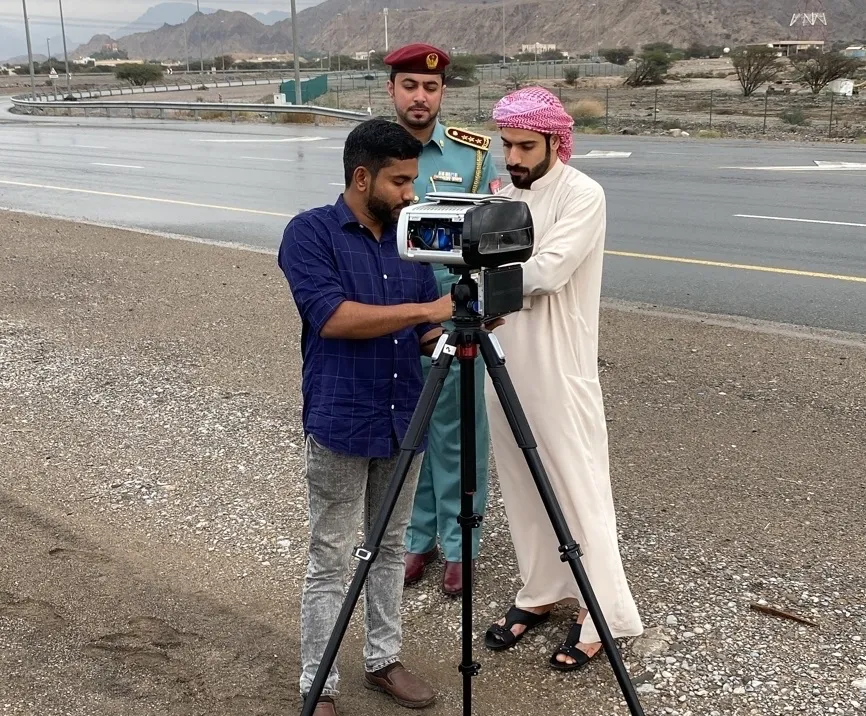
Intertraff has deployed speed enforcement cameras in Fujairah, one of the seven emirates which make up the United Arab Emirates.
"This project continues our strong collaboration with Inovexline, our trusted local partner in the UAE," says Toni Marzo, founder and CEO of Intertraff.
"For Fujairah, we installed 20 units of our D-Cop 3 fixed speed cameras. These systems efficiently monitor up to three lanes of traffic, offering a cost-effective alternative to our standard fixed cameras, which are capable of monitoring six or more lanes."
The Emirate of Fujairah's "technical expertise and deep understanding of cutting-edge traffic enforcement technologies ensure a rigorous evaluation process", explains Marzo.
"Typically, they select providers through stringent proof-of-concept trials, often requiring our systems to perform side-by-side with competitors’ solutions at the same installation site. This comprehensive benchmarking ensures that only the best solutions are chosen."
Since 2017, Intertraff's enforcement cameras—both fixed and mobile—have been installed across the UAE's northern emirates.
As well as enforcing speed regulations, the units address multiple traffic violations, including hard shoulder monitoring, tailgating detection, vehicle classification, with speed limits tailored to each class.
They also have capacity for low-speed enforcement, introduced in the UAE in April 2023, Marzo says.
"In addition to traffic enforcement, our cameras double as security tools by recording licence plates and performing vehicle make and model recognition for all passing vehicles," he adds. "Another key feature of our cameras is their low power consumption, making them ideal for remote installations. Many units in desert areas operate entirely on solar power, enabled by a standard solar panel set-up."










